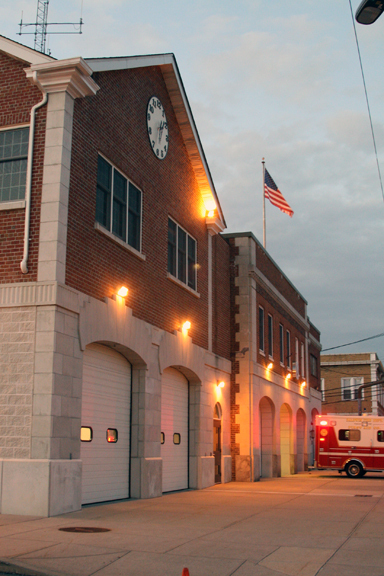Prevent home heating fires
Heating equipment is a leading cause of home fires during the months of December, January and February, and trails only cooking equipment in home fires year-round, according to the National Fire Protection Association (NFPA).
On average, more than a third of home fire deaths in the United States occur during the winter months. Critical elements of home heating safety have to do with correct installation, maintenance, fueling and operation of portable and space heaters, as well as safely arranging household items around them.
This winter, as many Americans turn to alternative sources to offset rising home heating costs, it is important to take note of safety practices to minimize the risk of fire and serious injury.
Major causes of home heating fires include:
— Lack of regular cleaning of chimneys in fireplaces and woodstoves.
— Placing things that can burn too close to space and portable heaters.
— Flaws in design, installation or use.
— Fueling errors involving liquid or gas-fueled heaters.
— Leaving portable or space heaters unattended.
— Prevent home heating equipment fires:
— When purchasing equipment, select items that have the mark of an independent testing laboratory.
— Install and maintain heating equipment correctly.
— Make sure the equipment complies with local fire and building codes.
— Read and follow the manufacturer's instructions when using a heating device.
Portable and other space heaters
— All types must be kept at least 36 inches from anything that can burn, including furniture, bedding, clothing, pets and people.
— Space heaters must not be left operating when you are not in the room, or when you go to sleep.
— Children should be supervised at all times when space heaters are in use.
— Do not put drying clothing or combustibles over heaters.
— Check for fraying or splitting wires, or overheating. Have problems repaired by a professional before operating the space heater.
Fireplaces
— Have chimney inspected by a professional prior to the start of every heating season, and cleaned if necessary.
— Creosote, a chemical substance that forms when wood burns, builds up in chimneys and can cause a chimney fire if not removed through cleaning.
— Use a sturdy fireplace screen.
— Make sure the damper (flue) is open while in use.
— Burn only wood. Never burn paper or pine boughs, which can float out the chimney and ignite your roof or a neighboring home.
— Do not use flammable liquids in a fireplace.
— Do not burn wrapping paper in the fireplace. A flash fire may result as wrappings ignite suddenly and burn intensely.
Contact information
The Baldwin Volunteer Fire Department is always available – 24 hours a day, seven days a week, 365 days a year. In an emergency, call (516) 223-0066, or dial 911. For non-emergency requests, such as Fire Prevention, Fire Inspections, or membership requests, contact us via our business number at (516) 223-6858, the Chiefs’ Office at (516) 223-1623 or email us at our website at www.baldwinfd.org.






